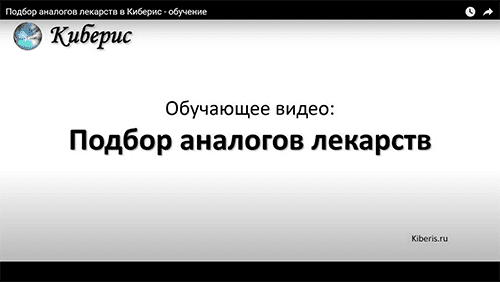T49 Poisoning by topical agents primarily affecting skin and mucous membrane and by ophthalmological, otorhinolaryngological and dental drugs - analogs
| Description «T49 Poisoning by topical agents primarily affecting skin and mucous membrane and by ophthalmological, otorhinolaryngological and dental drugs» | ||||||
|
||||||
Начиная работу с сервисом, вы принимаете соглашение пользователя. Kiberis do not replace the doctor!
- 20% Compare T44.0 Poisoning, anticholinesterase agents
- 20% Compare T47 Poisoning by agents primarily affecting the gastrointestinal system
- 20% Compare T37.1 Poisoning, antimycobacterial drugs
- 20% Compare T43.8 Poisoning, other psychotropic drugs, not elsewhere classified
- 20% Compare T50.9 Poisoning, other and unspecified drugs, medicaments and biological substances
- 20% Compare T43 Poisoning by psychotropic drugs, not elsewhere classified
- 20% Compare T46 Poisoning by agents primarily affecting the cardiovascular system
- 20% Compare T45.1 Poisoning, antineoplastic and immunosuppressive drugs
- 20% Compare T44 Poisoning by drugs primarily affecting the autonomic nervous system
- 20% Compare T38.4 Poisoning, oral contraceptives
- 20% Compare T37.2 Poisoning, antimalarials and drugs acting on other blood protozoa
- 20% Compare T37 Poisoning by systemic antibiotics by other systemic anti-infectives and antiparasitics
- 20% Compare T48 Poisoning by agents primarily acting on smooth and skeletal muscles and the respiratory system
- 20% Compare T49.8 Poisoning, other topical agents
- 20% Compare T57.1 Toxic effect, phosphorus and its compounds
- 20% Compare T37.5 Poisoning, antiviral drugs
- 20% Compare T44.1 Poisoning, other parasympathomimetics [cholinergics]
- 20% Compare T36 Poisoning by systemic antibiotics
- 20% Compare T36.5 Poisoning by systemic antibiotics, aminoglycosides
- 13% Compare T41 Poisoning by anaesthetics and therapeutic gases
- 13% Compare T45 Poisoning by primarily systemic and haematological agents, not elsewhere classified
- 13% Compare T46.5 Poisoning, other antihypertensive drugs, not elsewhere classified
- 10% Compare T65.1 Toxic effect, strychnine and its salts
- 10% Compare A05.3 Foodborne Vibrio parahaemolyticus intoxication
- 10% Compare T38 Poisoning by hormones and their synthetic substitutes and antagonists, not elsewhere classified
- 10% Compare T42.4 Poisoning, benzodiazepines
- 10% Compare T42.7 Poisoning, antiepileptic and sedative-hypnotic drugs, unspecified
- 10% Compare T40.9 Poisoning, other and unspecified psychodysleptics [hallucinogens]
- 10% Compare T52 Toxic effect of organic solvents
- 10% Compare T43.3 Poisoning, phenothiazine antipsychotics and neuroleptics
- 10% Compare T40 Poisoning by narcotics and psychodysleptics [hallucinogens]
- 10% Compare T51 Toxic effect of alcohol
- 10% Compare A05.0 Foodborne staphylococcal intoxication
- 10% Compare T58 Toxic effect of carbon monoxide
- 10% Compare T65.0 Toxic effect, cyanides
- 10% Compare T52.9 Toxic effect, organic solvent, unspecified
- 10% Compare T39 Poisoning by nonopioid analgesics, antipyretics and antirheumatics
- 10% Compare T39.8 Poisoning, other nonopioid analgesics and antipyretics, not elsewhere classified
- 10% Compare A05.4 Foodborne Bacillus cereus intoxication
- 10% Compare T39.0 Poisoning, salicylates
- 10% Compare T40.2 Poisoning, other opioids
- 10% Compare T60.0 Toxic effect, organophosphate and carbamate insecticides
- 10% Compare T57.0 Toxic effect, arsenic and its compounds
- 10% Compare T56.3 Toxic effect, cadmium and its compounds
- 10% Compare T56.1 Toxic effect, mercury and its compounds
- 10% Compare T52.8 Toxic effect, other organic solvents
- 10% Compare T50.9.0* Alkaloid poisoning
- 10% Compare X46 Accidental poisoning by and exposure to organic solvents and halogenated hydrocarbons and their vapours
- 10% Compare T59.6 Toxic effect, hydrogen sulfide
- 10% Compare P93 Reactions and intoxications due to drugs administered to fetus and newborn
Learn more about the selection of analogues
- Medical online service designed to help in differential diagnostics.
- Find similar diseases for a diagnosis that causes irritation.
- If you are a professional, then the help of artificial intelligence will help in the express diagnostics.
The advantage of Kiberis is its versatility, thanks to which it is able to select analogues for anything, including for diseases and diagnoses. Artificial intelligence analyzes descriptions of diseases, clinical recommendations for their treatment, real statistics on making diagnoses and displays the most similar diseases with a degree of similarity in percent.
